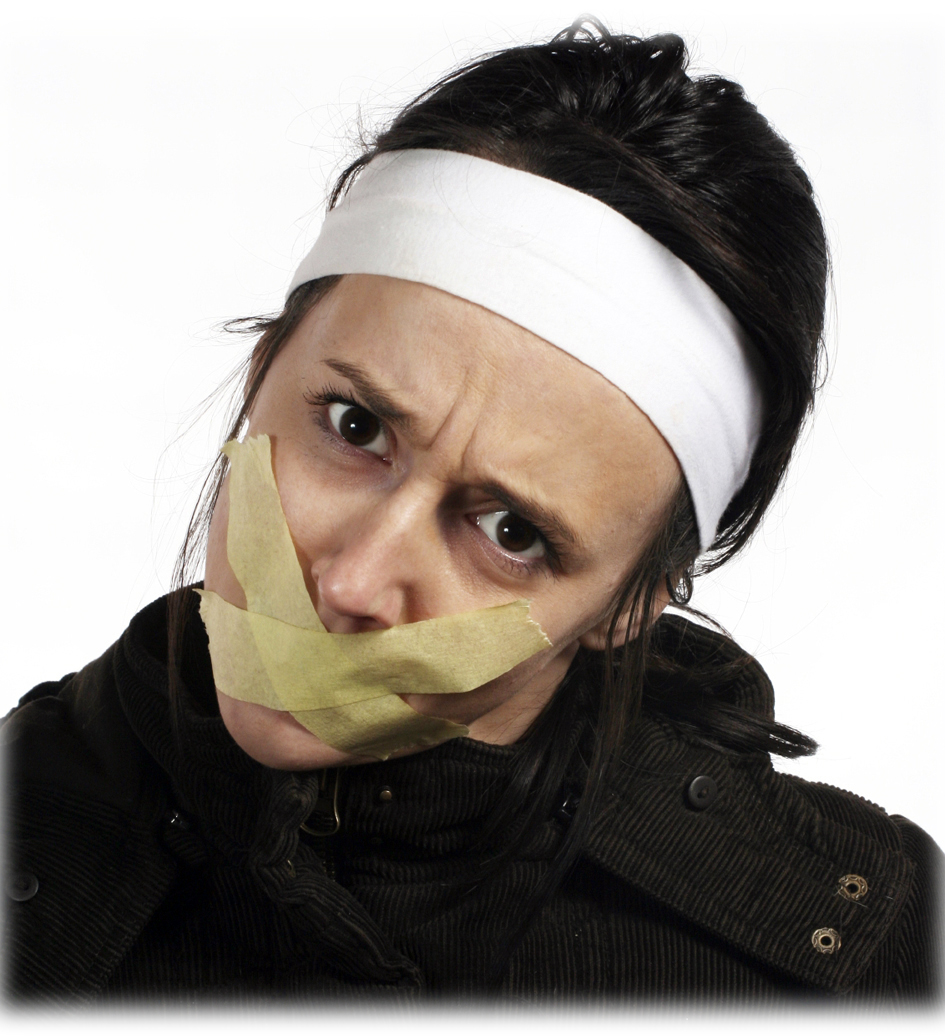The ANH Team
[This article may be reproduced on a website, e-zine, magazine or other medium so long as the article is included in its entirety, that it is prominently acknowledged as having been sourced from the Alliance for Natural Health and a link is given back to this page]
The case of Frede Damgaard
Yesterday a landmark ruling was issued by the European Court of Justice which will dramatically influence reporting about the benefits of natural products used in healthcare. The ruling on Case C-421/07 relates to the Danish government’s criminal proceedings against a journalist, Frede Damgaard, regarding “dissemination of information about a medicinal product by a third party acting on his own initiative”.
The basis of the case
Like many journalists, Mr Damgaard had written extensively about natural products. The product that is the subject of this case sold under the trade name Hyben Total. The product contained rose hip which has been used traditionally to deal with a wide range of ailments including arthritic conditions. It also has a fair body of science to back up its use. In fact, the science was sufficient to allow the product to be granted medicinal licences in a number of European countries including Denmark, Sweden and Norway. But in 1999, Denmark withdrew Hyben Total’s medicine licence, leaving the product, along with many others, as a botanical sold as a ‘food supplement’.

Some of the rose hip containing Hyben products
But Mr Damgaard’s problem really started in 2003 when he published information on his website about Hyben Total, which continued to be sold as a medicine in both Sweden and Norway. Mr Damgaard eluded to the product’s many benefits in relieving pain from various types of gout and arthritis.
This stimulated the Western Regional Court in Denmark (Vestre Landsret) to challenge Mr Damgaard for breaching European medicinal law (Directive 2001/83/EC) on the basis that his publication constituted advertising of a medicinal product which was not authorised in Denmark. After being prosecuted criminally in this preliminary case, the case was then referred to the European Court of Justice in Luxembourg. This is the highest court in Europe and holds ultimate sway in any legal matter within Europe.
The ruling was handed down yesterday, on 2nd April 2009. Astonishingly, the ruling largely went against the opinion given in November 2008 by the Advocate General in the case. But more on that later.
How might the case affect journalists?
Although the Court made some effort to balance issues of freedom of expression, including Article 10 of the European Convention for the Protection of Human Rights and Fundamental Freedoms and the protection of consumer health, its decision is one which could have calamitous impacts on the ability of the so-called ‘free press’ to report on natural health products.
Take for example the editorials in national papers and magazines across Europe which devote themselves to health and lifestyle issues. Or the trade press which informs health store owners or practitioners about new products, their purpose and their benefits. Such writings have always been thought of as editorials, these being quite distinct from ‘advertorials’ or ‘advertisements’ because there is no direct connection between the reporting of such products and the commercial player, the manufacturer or retailer.
The Danish government’s case, now endorsed by the highest Court in Europe, will likely send shockwaves through every journalist who has written or intends to write about natural products. While most of these journalist had previously felt immune from criminal prosecution when writing about natural health products because their writings were thought to be independent viewpoints that did not constitute ‘advertising’ or any other commercial presentation, the European Court’s ruling now says otherwise.
The ‘bottom line’ in the ruling is, as is generally the case in such rulings, the final paragraph, paragraph 29. It says it all and it reads as follows:
“In the light of all the foregoing, the answer to the question referred is that Article 86 of Directive 2001/83 is to be interpreted as meaning that dissemination by a third party of information about a medicinal product, including its therapeutic or prophylactic properties, may be regarded as advertising within the meaning of that article, even though the third party in question is acting on his own initiative and completely independently, de jure and de facto, of the manufacturer and the seller of such a medicinal product. It is for the national court to determine whether that dissemination constitutes a form of door-to-door information, canvassing activity or inducement designed to promote the prescription, supply, sale or consumption of medicinal products.”
While the ruling gives the potential ‘let out’ by individual European Member States, there can be no doubt that in countries like Denmark, Germany and Finland where regulators have traditionally taken a very tough line against natural health products, this ruling will be taken as carte blanche for regulators to go after journalists who make medicinal claims about products which are sold as food supplements even when the journalist is acting completely independently of the manufacturer or retailer.
Alternatively, the ruling could establish such a culture of fear, that journalists will decline from giving natural health products the coverage they had previously been able to give.
Of course, for any government to have legal traction under the terms of the new ruling, the product would have to be licenced as a medicine in at least one Member State, just as Denmark had to rely on the medicinal licence granted by the Swedish government (Norway doesn’t count as it is not part of the EU). But what about other products? Glucosamine is classified as a medicine in Sweden and Denmark—and, let’s face it—high dose variants of virtually any vitamin or mineral you care to think of have been registered as medicines in at least one Member State.
When you look at the intended purpose of medicinal law in Europe you begin to see the agenda, and it’s no surprise that this has been picked up by the European Court. The preamble (Recitals 2 and 3) of the main directive on European medicinal law (Directive 2001/83/EC) states:
“The essential aim of any rules governing the production, distribution and use of medicinal products must be to safeguard public health……this objective must be attained by means which will not hinder the development of the pharmaceutical industry or trade in medicinal products within the Community.”
So there we have it—a law designed to protect Big Pharma is now being used to limit freedom of speech by journalists whose independent views are now deemed as advertising.
When you couple this kind of infringement of freedom of speech with that which is going to occur when Article 13 of the Nutrition and Health Claims Regulation begins to bite in 2010, it starts to look as if the ‘European project’ brings with it a culture of control and limitation of freedoms that has in the past been the exclusive domain of rabid dictatorships. And these are of course the very dictatorships that have been consistently rejected by all truly democratic societies!
The Advocate General’s Opinion
On 18th November 2008, the Advocate General in the case, Dámaso Ruiz-Jarabo Colomer, gave his Opinion. In our view, it’s without doubt an erudite opinion that, compared with the subsequent ruling by the Court itself, considers much more seriously the concerns over how the Danish government might infringe freedom of speech.

AG Ruiz-Jarabo Colomer
For example, the AG talked about how journalists should be given considerable freedom to stimulate debate and foster ideas. He reflected on rulings of the European Court of Human Rights which has “emphasised the great importance of this freedom, stating that it constitutes ‘one of the essential foundations of [a democratic] society, one of the basic conditions for its progress and for the development of every man’”. He went on to say: “Thus, the protection it affords is applicable not only to ‘“information” or “ideas” that are favourably received or regarded as inoffensive or as a matter of indifference, but also to those that offend, shock or disturb the State or any sector of the population’”. He added that freedom of expression ‘[enables] expression to be given to opinions which differ from those held at an official level’.
Centrally AG Ruiz-Jarabo Colomer said that as long as the journalist was found to have a “lack of connection” with the manufacturer or retailer of the medicinal product, this would provide a strong indication that the presentation of information by the journalist was not promotional in nature. In other words, it should not be considered as advertising the medicinal product.
It is of course the rejection of the AG's entirely rational view by the Court that is so alarming.
Turning the argument around?
What about the pro-pharma journalists? Could they be impacted by the European Court’s ruling in the case of Mr Damgaard? In theory, we think, yes. If they are using the pages of a national newspaper to wax lyrical about one of their favourite drug company’s latest patented products—going beyond the narrow claims for which the product has been authorised, whether it’s an anti-obesity drug or an SSRI anti-depressant, couldn’t they be accused of providing misleading advertising of a drug? The case of statins comes to mind. Many journalists are upholding the orthodox view that any overweight over-50 year-old should be on statins for the rest of their lives. But as the UK medical journalist Jerome Burne reminds us, a recent paper in the prestigious UK medical journal The Lancet (“Are lipid-lowering guidelines evidence-based?”) has demonstrated that 50 of such men would have to take statins for five years for just one to benefit. So isn’t the generalised recommendation for the overweight over-50s set to take statins misleading?
Or, to raise another contentious issue with which we are intimately involved, what about those journalists supporting the fluoridation of drinking water in countries like the UK and Ireland? Fluorette is a medicinal product containg fluoride (sodium fluoride) and a related form of fluoride (fluorosilicic acid) is added to the water of some European Member States. Will a journalist who publishes his pro-fluoride views, which parallel those of the Irish and UK government, be engaging in a criminal act?
What also about off-label prescribing by doctors? Burne has reported often on the disturbing trend for doctors to prescribe medicines for purposes which are not authorised. In an article he wrote for The Independent newspaper in 2007, Burne reported on a study in the Archives of Internal Medicine which showed that, at least in the USA, 21% of the 160 most commonly prescribed drugs were given to people on an off-label basis. He also made mention of a study carried out by Stanford University that showed that there was “little or no scientific support” to support around 75% of such off-label use. Surely then doctors who recommend off-label use also fall foul of the provisions of the Medicines Directive, and it would be hard to deny that their recommendations don’t promote the sale of products for which their use is not authorised?
In practise, we are not sure that the new ruling by the European Court will silence either the pro-pharma journalists or the off-label prescribing doctors. Why? Because they won’t be offending the pharma companies that the European Directive sets out to protect. In fact, they will be doing the exact opposite, so unless consumers or other concerned parties were able to enlist the support of a government in bringing a challenge through the courts, the journalists will undoubtedly remain vocally pro-pharma and the doctors will carry on prescribing for off-label uses.
What Damgaard’s lawyer said
Reporting to Nutraingredients today, Susie Ekstrand, of the Danish law firm, Lett, acting as counsel for Damgaard said:
“This ruling is significant because it means anything written about a product that maybe deemed medicinal in one member state, can be deemed inappropriate and consequences may follow for the author.”
Bloggers beware. You might be next on the hit list.
Restricting freedom of the internet: joining the dots
How else are our freedoms being infringed? Could our most valuable means of relatively uncensored communication, the internet, become the next major target? Many would say yes, and indeed some countries have already imposed severe censorship.
The Anti-Counterfeiting Trade Agreement (ACTA) is a proposed global trade agreement, which allegedly came into being to respond to the "to the increase in global trade of counterfeit goods and pirated copyright protected works". Harmless enough and necessary you might think, however the scope of the ACTA is very broad and includes counterfeit physical goods, as well as—and this is the worrying bit—"internet distribution and information technology", aka potential limitation and control of the internet.
We’re aware that murmurings have been sounded regarding control/limitation of the internet and we know that in some countries this situation already exists (e.g. China, United Arab Emirates). Whilst we in the West have always valued our freedom of speech and accepted it as a basic human right, it would seem from yesterday’s ECJ ruling that Europeans can no longer take anything for granted. A press release today issued by the Foundation for a Free Information Infrastructure (FFII), further highlights some worrying developments.
The European Council may be set to pass the ACTA silently during parliamentary recess without Members of the European Parliament (MEP) having seen the final draft. In answer to MEP Jens Holm, who has asked if the final draft of the ACTA will be published prior to political agreement in the Council, whether democratic representatives will have time to scrutinise the content and whether the Council can ensure that the ACTA will not be quietly passed during the recess this summer, the Council declined to answer.
Instead it writes, “since the stage of the final determination of the legal basis has not yet been reached, it is not possible for Council to reply in detail to the procedural questions raised by the Honourable Member”. However FFII analyst Ante Wessels has responded that, “the Council can publish texts regardless of the legal basis. No legal basis obliges the Council to pass ACTA silently during parliamentary recess. The Honourable Member received a bogus answer”.
The FFII press release continues that whilst the EU, US, Japanese and other governments are negotiating ACTA no drafts are published, but in the US many corporate lobbyists are considered ‘cleared advisors’ and have access to ACTA documents. So once again we have a situation where big corporations have access to sensitive information, but democratic representatives and members of the public are kept deliberately in the dark.
Is this further proof that we are now well and truly into a post-democratic era?
In a personal communication with the ANH today, Ante Wessels said that whilst some draft documents have been leaked, the text for the section on the internet is not yet complete and hence, has not been seen.
We agree that, “it is a sick and illegal situation that lobbyists receive texts Members of Parliament do not get". The European Parliament has adopted two resolutions asking for access to ACTA documents and it’s worth remembering that both the European Parliament and the Member States of the EU can veto ACTA—if they get access to the information before it’s passed!
Watch this space for further details.
Back to ANH Campaigns
Back to ANH Home Page








Comments
your voice counts
There are currently no comments on this post.
Your voice counts
We welcome your comments and are very interested in your point of view, but we ask that you keep them relevant to the article, that they be civil and without commercial links. All comments are moderated prior to being published. We reserve the right to edit or not publish comments that we consider abusive or offensive.
There is extra content here from a third party provider. You will be unable to see this content unless you agree to allow Content Cookies. Cookie Preferences